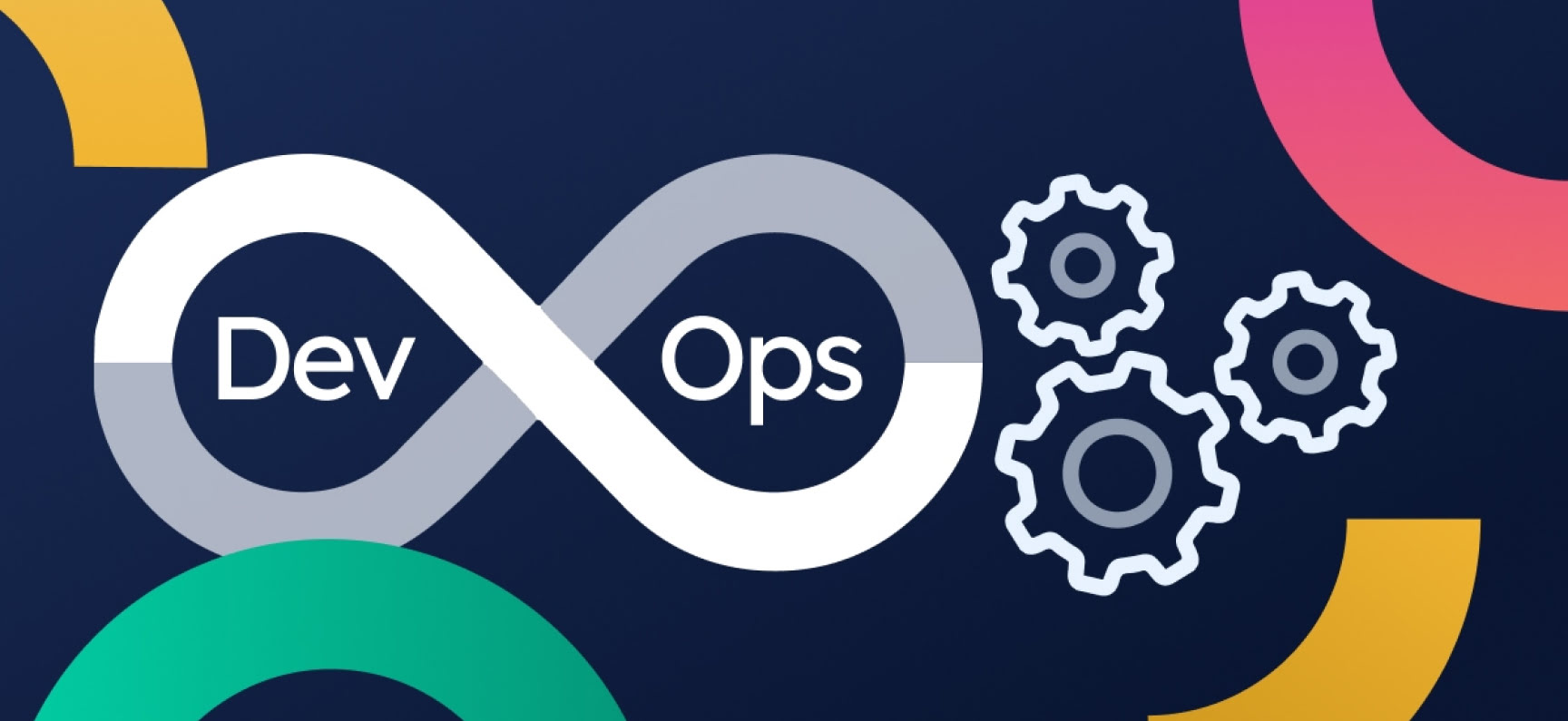In today’s fast-paced digital world, businesses need to release high-quality software quickly to stay competitive. Implementing a CI/CD pipeline is a proven strategy for achieving this goal. By automating testing, integration, and deployment, CI/CD enables businesses to deliver faster product releases while maintaining high standards of software quality. The DevOps platform market, encompassing CI/CD tools and services, is projected to expand by USD 22.34 billion between 2023 and 2028, with a CAGR of 27.89% throughout the forecast period, reflecting the growing demand for automation in software development and deployment.
The choice of CI/CD tools plays a critical role in the success of these processes. In this article, we will investigate the best CI/CD tools that can be found in 2025, see how they assist businesses in increasing productivity and identify which tools work best for varied scenarios in DevOps, security as well as app development.
What is CI/CD?
CI/CD is a technique that makes the software development life cycle automatic, increasing the speed and quality of software releases. Continuous integration concentrates on making code from many developers combined automatically in one shared place for storing code. With continuous delivery (CD), the releasing process becomes automatic, too, confirming that we can put this software out for production whenever needed. CI/CD combines to allow quicker development cycles, lessens the chance of bugs, and guarantees that teams can productively deliver fresh features or repairs. With the most popular CI/CD tools in 2025, such as Jenkins, GitLab, and Azure DevOps, businesses can implement efficient, automated workflows that significantly improve their software delivery process.

Top CI/CD Tools to Streamline Software Development
Implementing a seamless continuous integration pipeline is essential for businesses looking to accelerate their software development process. Choosing the right CI/CD tools can greatly enhance productivity and reduce deployment times. Below is a list of CI/CD tools used in DevOps that are driving automation and efficiency in software delivery.
1. Jenkins
Jenkins is one of the most popular tools for CI and CD in 2025 and has been a staple in the DevOps ecosystem for many years. It is an open-source automation server that facilitates the automation of various stages of the development pipeline, including building, testing, and deploying software. Jenkins offers a wide range of plugins and integrations with other tools, making it highly customizable for different environments.
Advantages:
- Highly extensible with plugins
- Supports automation across the entire development lifecycle
- Works well with other software for CI/CD integration
Best For: Jenkins is an excellent tool for businesses that require flexibility and a robust community support system.
2. GitLab
GitLab is another of the best CI/CD pipeline tools for organizations looking to automate their development process end-to-end. It offers built-in capabilities, allowing for seamless integration between Git repositories, issue tracking, and continuous integration pipelines. GitLab is especially popular for its version control and code collaboration features, making it an all-in-one platform for DevOps teams.
Advantages:
- Comprehensive features for version control, continuous delivery, and monitoring
- Integrated security and compliance features, including CI/CD security testing tools
- Built-in monitoring and logging
Best For: GitLab is a great choice for teams looking for an all-in-one platform that streamlines collaboration and automation in a single interface.
3. Bitbucket Pipelines
Bitbucket, known for its Git-based source code repository service, also provides CI integration via Bitbucket Pipelines. This tool integrates seamlessly with Bitbucket’s source control, making it easy to automate the build, test, and deployment phases of the development cycle.
Advantages:
- Tight integration with Bitbucket repositories
- Great for smaller teams or businesses already using Bitbucket for version control
- Supports a wide range of cloud services
Best For: Bitbucket is ideal for businesses already using Bitbucket for version control and looking to integrate continuous integration with minimal setup.
4. Harness
Harness is an emerging player in the world of CI/CD deployment tools, offering a modern, AI-driven platform for automating software delivery. It is especially valuable for businesses focusing on continuous integration security and continuous delivery. Harness simplifies continuous deployment, scaling, and monitoring while focusing heavily on security and compliance.
Advantages:
- Built-in continuous security testing
- Easy integration with virtual services
- Supports both CI/CD pipeline monitoring tools and deployment software
Best For: Harness is ideal for businesses that prioritize security, compliance, and continuous delivery in their software development process.
5. Azure DevOps Services
Microsoft’s Azure DevOps services provide a comprehensive suite of tools for managing the entire lifecycle of web application development. Azure DevOps includes tools for pipeline development, version control, project management, and collaboration. It integrates well with other Azure services, making it an excellent choice for businesses using virtual services and mobile app development in Azure environments.
Advantages:
- Excellent integration with other Microsoft products
- Advanced features for CI/CD pipeline testing tools
- Scalable and suitable for enterprises
Best For: Azure DevOps is perfect for businesses that are already using Microsoft’s cloud infrastructure and services.
6. CircleCI
CircleCI is one of the most used CI/CD tools in the industry, known for its ability to automate testing and deployment across various environments. It offers both cloud-based and on-premises options, making it a flexible choice for teams looking to scale their development cycles while ensuring robust security. As one of the top CI/CD tools in 2025, CircleCI ensures that your code is tested for vulnerabilities and performs well before deployment.
Advantages:
- Fast and scalable builds
- Supports automated testing, deployment, and security scans
- Integrates well with various cloud platforms and source control software
Best For: CircleCI is great for businesses focused on fast, secure delivery with minimal manual intervention.
7. Travis CI
Travis CI is one of the best free CI/CD tools available, providing a cloud-based automation service that integrates well with GitHub repositories. It’s an ideal option for smaller teams or open-source projects that need to automate their testing and deployment processes without significant investment.
Advantages:
- Free for open-source projects
- Seamless integration with GitHub
- Easy setup and configuration
Best For: Travis CI is perfect for startups, open-source projects, or businesses with small development teams looking for a cost-effective solution.

CI/CD Tools for Automation Testing
Automation testing is a key component of any continuous integration pipeline. Different CI/CD tools for automation testing can ensure that your code meets quality standards before it gets deployed to production. Tools like Jenkins, GitLab, and CircleCI allow teams to integrate automated testing into their pipelines, ensuring that code is thoroughly tested and ready for deployment.
Tools such as Selenium and JUnit can be integrated into continuous integration pipelines to perform functional, integration, and unit testing automatically whenever code is pushed. These pipeline testing software reduce the need for manual testing, speed up release cycles, and ensure more reliable software.

Pipeline Monitoring Tools
Once your continuous integration pipeline is set up, monitoring it is crucial for ensuring its efficiency and reliability. Pipeline monitoring software like Prometheus and Grafana allow teams to track the health of their pipeline, identify bottlenecks, and make adjustments as necessary.
These monitoring tools are critical in ensuring that your deployment tools and pipeline are performing optimally, helping teams address issues before they escalate. Some examples CI/CD tools in DevOps include Prometheus and Grafana, which provide real-time insights into the performance and efficiency of your pipeline, ensuring smooth and continuous software delivery.
Choosing the right CI/CD tool
With so many continuous delivery software available, choosing the right one depends on the specific needs of your business. Factors such as virtual services, integration requirements, security, and scalability should guide your decision. Here’s a quick comparison of CI/CD tools:
- Jenkins: Highly flexible and widely used in large-scale enterprise applications, but may require more setup.
- GitLab: Ideal for teams looking for an all-in-one solution with built-in version control and continuous integration features.
- Harness: Best for businesses that require continuous deployment and security-driven automation.
- Azure DevOps: Perfect for organizations already leveraging Microsoft tools and services.
- Bitbucket: Ideal for smaller teams or those already using Bitbucket for source control.
Why Choose Artjoker for Your CI/CD Needs
At Artjoker, we provide expert DevOps services and continuous integration to help businesses improve software delivery and boost productivity. Here’s why businesses choose us for their continuous integration needs:
- Profound Expertise: We specialize in best open source CI/CD tools like Jenkins and GitLab, ensuring flexible, reliable, and scalable pipelines.
- Tailored Solutions: We customize continuous integration implementation to meet your specific development needs, ensuring it fits seamlessly with your workflows.
- Robust Security: We integrate security testing tools to safeguard your software and detect vulnerabilities early.
- Automation & Efficiency: We help automate the entire pipeline, reducing manual efforts and minimizing errors.
- Ongoing Support: We provide continuous support to maintain and optimize your continuous integration pipeline as your business grows.
- Cloud Integration: We ensure seamless integration with cloud services like Azure DevOps for scalable, efficient development.

Conclusion
In conclusion, implementing a continuous integration pipeline is a game-changer for businesses that want to improve productivity, accelerate product releases, and maintain high-quality software standards. Choosing the right continuous integration software is crucial for ensuring seamless automation across the development lifecycle. From top continuous integration pipeline tools like Jenkins and GitLab to continuous integration security tools like CircleCI and Travis CI, each tool serves different needs and use cases.
For businesses seeking to build a streamlined, automated development process, investing in continuous integration software and following CI/CD best practices can lead to faster releases, better collaboration, and more secure software. Whether you are focused on app development, virtual services, or DevOps, selecting the right continuous delivery integration tools will help you deliver more reliable, high-quality products to your customers.
If you’re looking for assistance in setting up or optimizing your continuous integration pipeline, Artjoker’s team of experts can help. We specialize in DevOps services, continuous delivery integration, and cloud solutions that will accelerate your development process and boost productivity. Contact us today to find out how we can help you streamline your development workflows and improve software delivery.
Similar articles
View all- PROJECT INQUIRIES info@artjoker.net
- CALL US +1 213 423 05 84
contact us:










